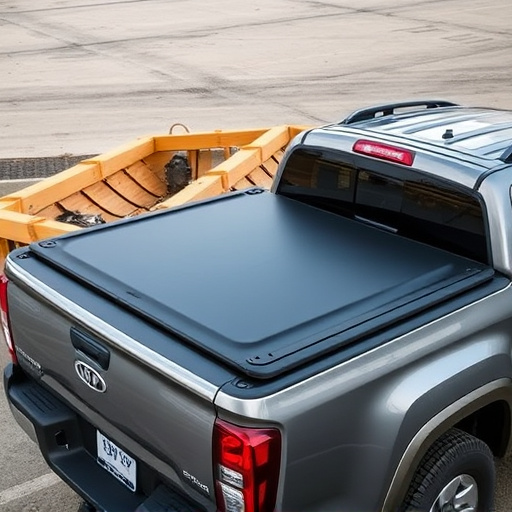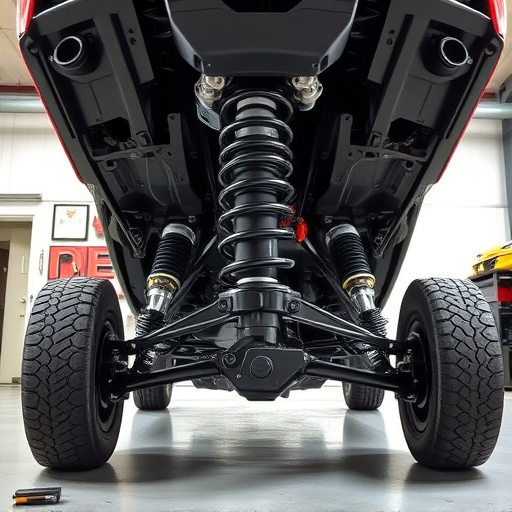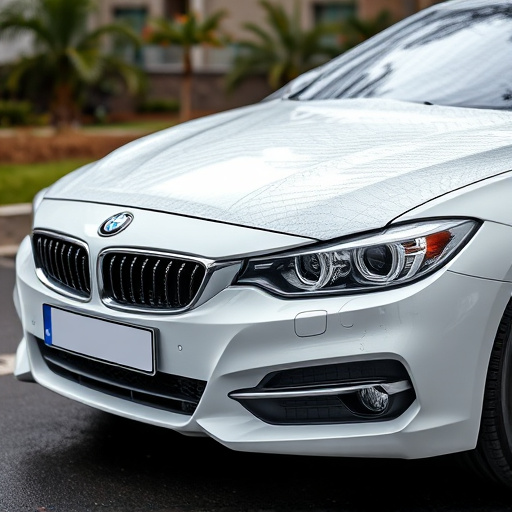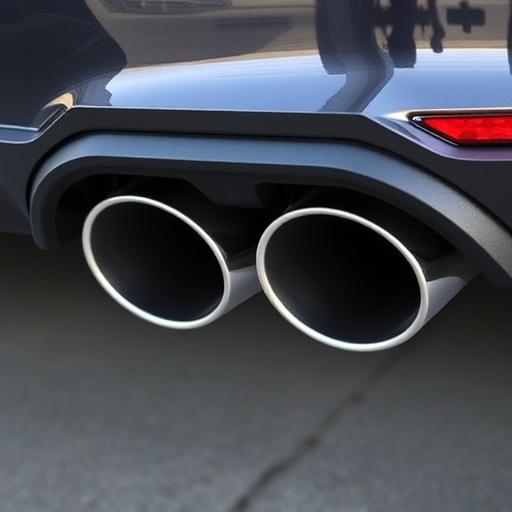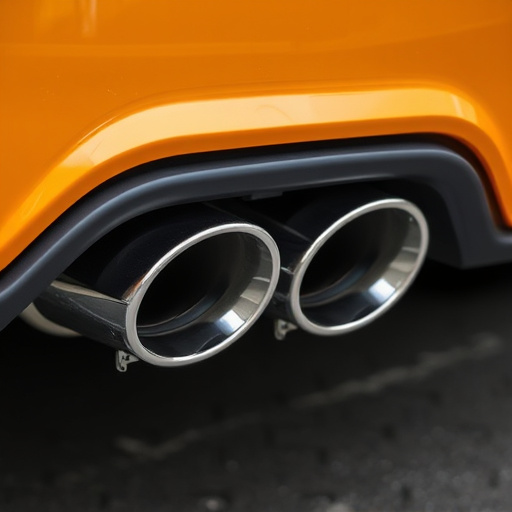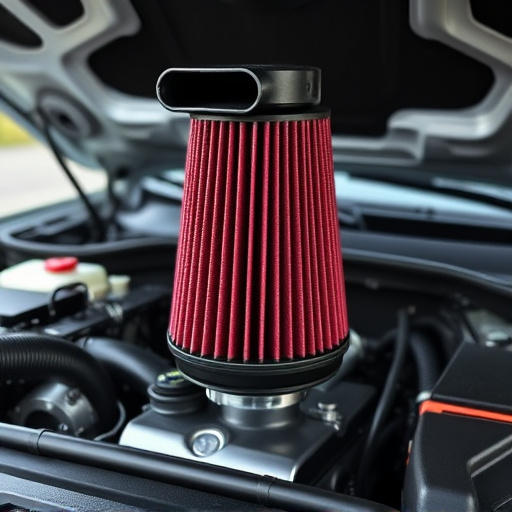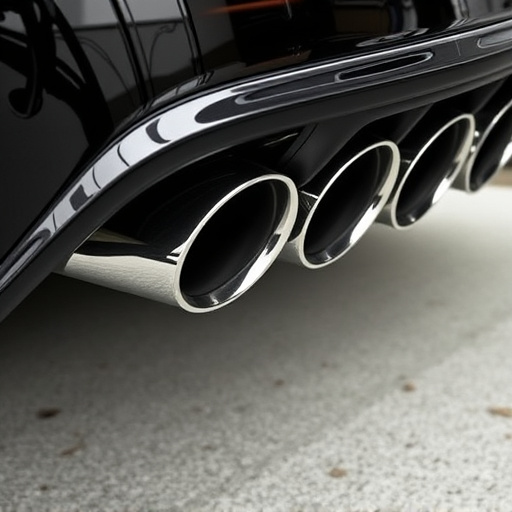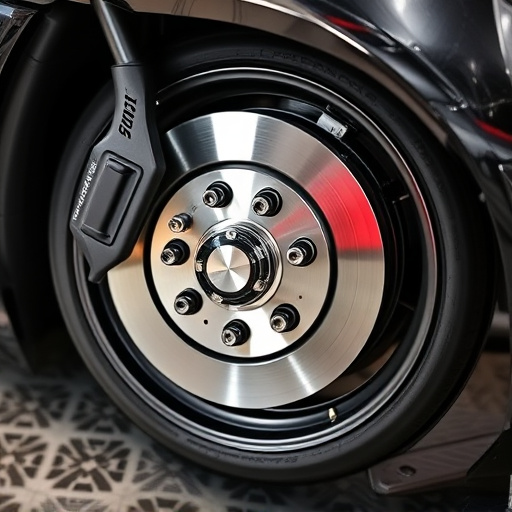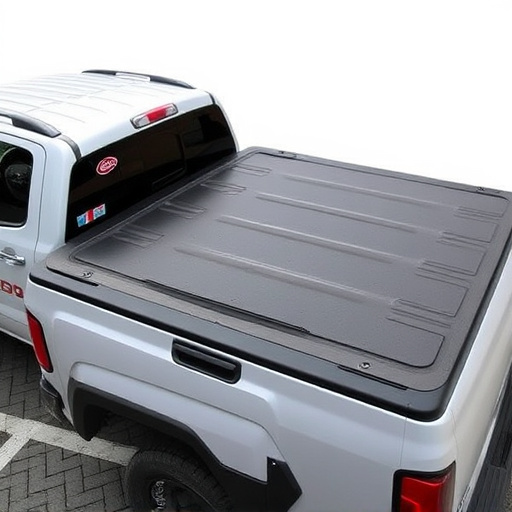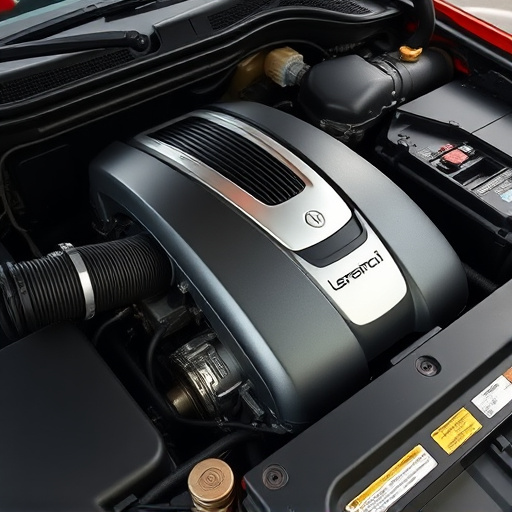Electric cars require specialized car suspension parts optimized for energy efficiency and weight reduction, integrating regenerative braking systems. Traditional components like shock absorbers, springs, and exhausts remain compatible, ensuring handling and performance. Customization enhances dynamics with adjustable coilovers, advanced struts, and precise control arms, while cold air intakes boost acceleration and cooling.
As electric cars gain popularity, understanding their unique suspension requirements is essential. Unlike traditional vehicles, electric cars demand suspension components that balance ride quality, efficiency, and performance. This article explores the critical role of car suspension parts in electric vehicles, delving into compatible systems, common upgrades, and customization options to enhance handling dynamics. Discover how optimizing these key components can significantly contribute to the overall driving experience of electric car owners.
- Understanding Electric Car Suspension Requirements
- Common Suspension Parts Compatible with Electric Vehicles
- Customization and Upgrades for Electric Car Handling
Understanding Electric Car Suspension Requirements
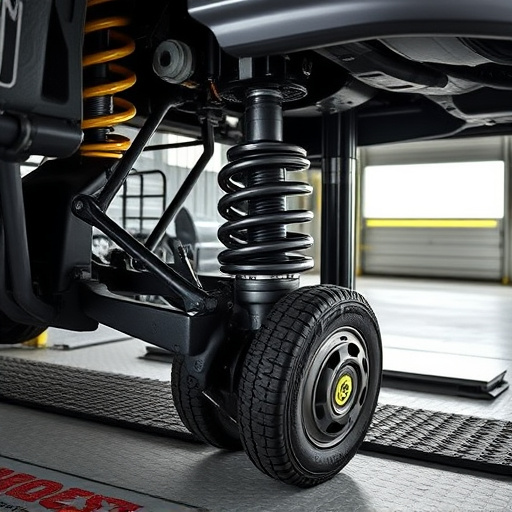
Electric cars have distinct requirements when it comes to their suspension systems, compared to traditional internal combustion engines. The primary focus shifts from power and performance to energy efficiency, weight reduction, and ensuring a smooth ride due to the immediate torque delivery of electric motors. As such, car suspension parts designed for electric vehicles must be lightweight, durable, and optimized for precision handling.
One key consideration is the integration of advanced suspension kits that can accommodate the unique electrical systems and components of electric cars, including regenerative braking mechanisms. Additionally, brake components like high-performance brake pads play a crucial role in ensuring efficient energy transfer during deceleration, contributing to overall energy efficiency. These adaptations ensure that electric vehicles maintain stability, handling, and safety while meeting the stringent environmental and performance standards characteristic of the electric car market.
Common Suspension Parts Compatible with Electric Vehicles
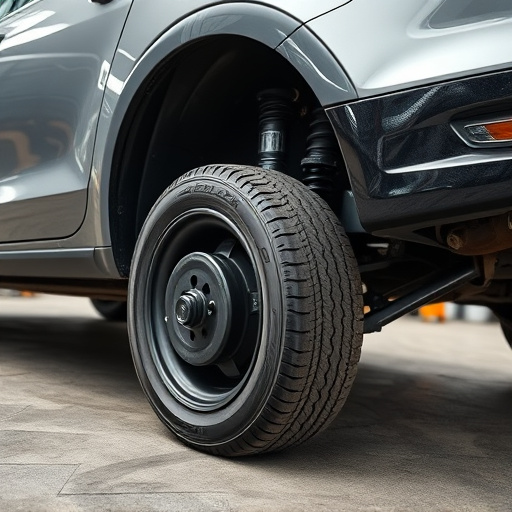
Electric cars are revolutionizing the automotive landscape, but transitioning from traditional gasoline-powered vehicles to electric ones doesn’t mean sacrificing vehicle performance or comfort. In fact, many common car suspension parts remain compatible with electric vehicles, ensuring a smooth and controlled ride. Shock absorbers, for instance, play a crucial role in managing road vibrations and maintaining tire contact, which is essential for enhanced handling and safety. These components are easily adaptable to electric cars, allowing for optimal vehicle control and stability.
Springs, another vital car suspension part, also see wide compatibility with electric vehicles. Coil springs, in particular, contribute to the overall vehicle height and ride quality, ensuring a comfortable driving experience. Many electric cars use similar spring types as their internal combustion counterparts, making upgrades or replacements straightforward. Moreover, air intake systems and performance exhausts, while not direct suspension parts, can complement electric car setups by enhancing engine cooling and improving vehicle performance, ultimately contributing to a more responsive and efficient drive.
Customization and Upgrades for Electric Car Handling
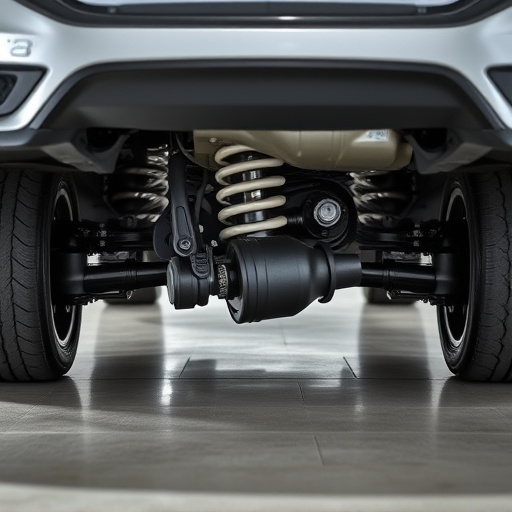
Electric cars, while renowned for their eco-friendly credentials and advanced technology, often come with unique handling characteristics that differ from their gasoline counterparts. This is primarily due to factors like weight distribution, center of gravity, and regenerative braking systems. To optimize the driving experience, many electric vehicle (EV) owners and enthusiasts turn to customization and upgrades specifically tailored for these new-age vehicles.
One area where EV owners can significantly enhance handling dynamics is by investing in high-performance car suspension parts. Custom suspension setups, including adjustable coilovers, advanced strut systems, and precision-engineered control arms, allow drivers to fine-tune their vehicle’s ride height, stiffness, and cornering abilities. Furthermore, integrating performance-oriented brake components, such as robust brake rotors designed for efficient heat dissipation, can ensure consistent stopping power during aggressive driving maneuvers. For those seeking an extra boost in both acceleration and engine cooling, cold air intakes have become a popular upgrade, drawing in cooler air to support the EV’s high-powered electric motor.
In conclusion, understanding the unique requirements of electric car suspension systems opens up a world of compatible and customizable parts. By equipping electric vehicles with the right components, drivers can enhance handling, improve safety, and ensure a smooth ride. With the growing popularity of electric mobility, investing in quality car suspension parts is not just an upgrade but a necessity for a better driving experience.


